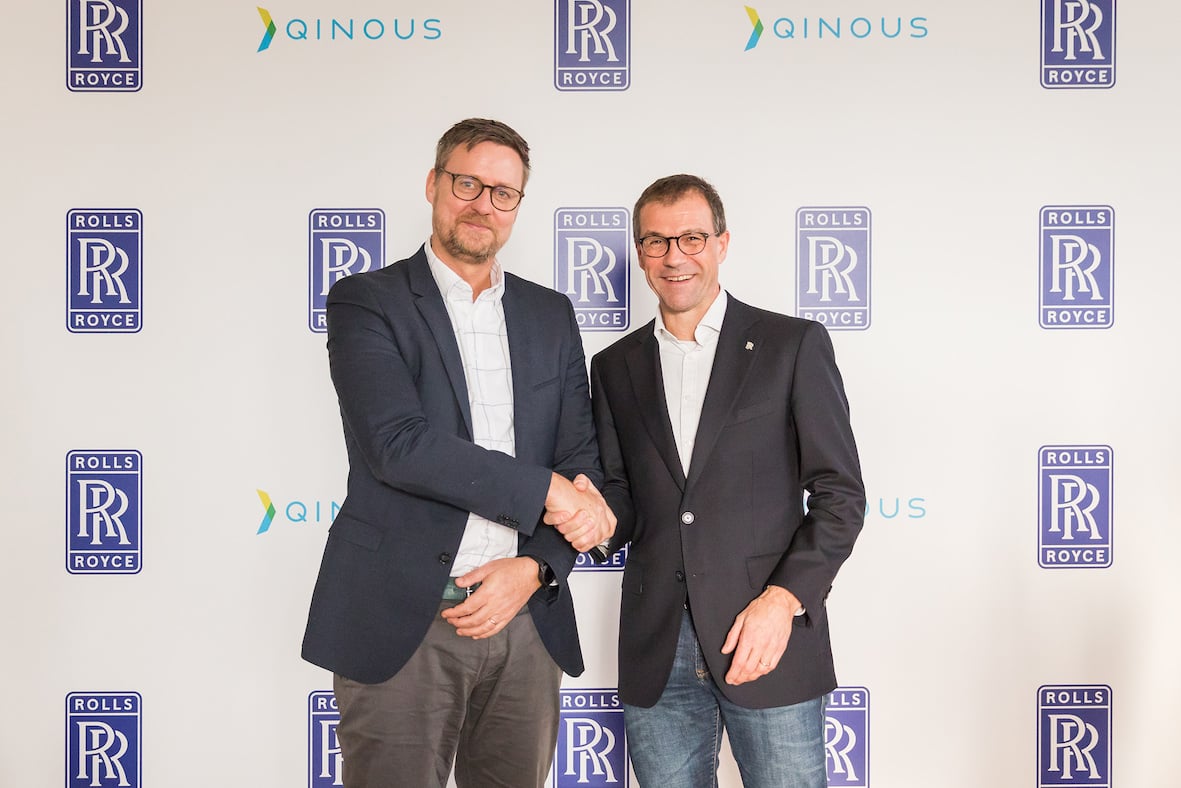
Rolls-Royce Power Systems, the Germany-headquartered engines and propulsions company in the Rolls-Royce Holdings group, has taken a majority interest in microgrid and hybrid power solutions company Qinous.
Having already taken a “strategic stake” in the German start-up two years ago, Rolls-Royce Power Systems will hold a 73.1% stake going forward. Qinous has executed a variety of microgrid projects around the world for commercial customers as well as communities, Rolls-Royce Power Systems said it will now establish Qinous’ Berlin HQ as its own centre for competence in microgrids. The new parent company markets and trades its engines under the MTU brand.
Enjoy 12 months of exclusive analysis
- Regular insight and analysis of the industry’s biggest developments
- In-depth interviews with the industry’s leading figures
- Annual digital subscription to the PV Tech Power journal
- Discounts on Solar Media’s portfolio of events, in-person and virtual
As with other providers in the space, Qinous uses hybrid combinations of generation including solar, wind and diesel gensets alongside battery energy storage and smart technologies to integrate and control them in “prefabricated, plug ’n’ play” solutions. At the time Rolls-Royce Power Systems took that strategic stake (19.9%), as Energy-Storage.news reported in late 2018, Qinous had executed around 30 projects worldwide ranging from 30kw capacity to multiple megawatts. The company said that even in the latter instance, it is able to pre-install and factory-test systems before they go out in the field.
Microgrids = ‘Autonomous electricity networks’
At the time of its initial stake purchase, Rolls-Royce Power Systems described the investment as enabling an interest in this type of “autonomous electricity network” and their ability to combine different distributed energy resources. Meanwhile, in a 2017 interview with Qinous’ co-founder Busso Von Bismarck, Von Bismarck said that microgrids can, and should, enable “productive uses of electricity” and go beyond simple aims like providing lighting and phone chargers.
In this morning’s release, Rolls-Royce said it is “engaged in research and development of microgrids and power generators at four locations”: three in Germany and one in the US, while Qinous at present has around 40 employees in Berlin. The pair have already been jointly developing solutions and Rolls-Royce Power Systems Division CEO Andreas Schell said the months of work done together already demonstrated that they are an “excellent fit”.
“Our new subsidiary is to play a pivotal role going forward. This is where we are going to pool all the division's microgrid activities – from simple storage solutions to complete, complex microgrid solutions of various sizes and configurations. As a young, start-up-style company, Qinous brings expertise that is an ideal complement to Rolls-Royce's industrial credentials,” Schell said.
“The combination of renewable energies and storage solutions, which are already being used successfully in on-grid and off-grid applications and to safeguard grid stability, will also find further areas of application in tomorrow's microgrid markets,” Sabine Wolff, investment manager at IBB Beteiligungsgesellschaft, one of the existing investors that agreed to sell up their stake, said.
“The partnership between Rolls-Royce and Qinous has become a success story for the Berlin operation, and presents us with an attractive exit opportunity.”
Meanwhile, Qinous’ co-founder and co-managing director Steffen Heinrich gave a statement which included thanks and appreciation for “the seedcorn investors who made it possible to set Qinous up as a company, and who have supported us actively right through to the present day.”
Rolls-Royce’s acquisition of the stake completes tomorrow (15th January). Purchase and share prices have not been disclosed, although it is understood Qinous’ founding shareholders will continue to hold shares and retain their current roles.
Join this year’s big conversation with the social media hashtag #SmartSolarStorage2020 (LinkedIn) & on Twitter.






